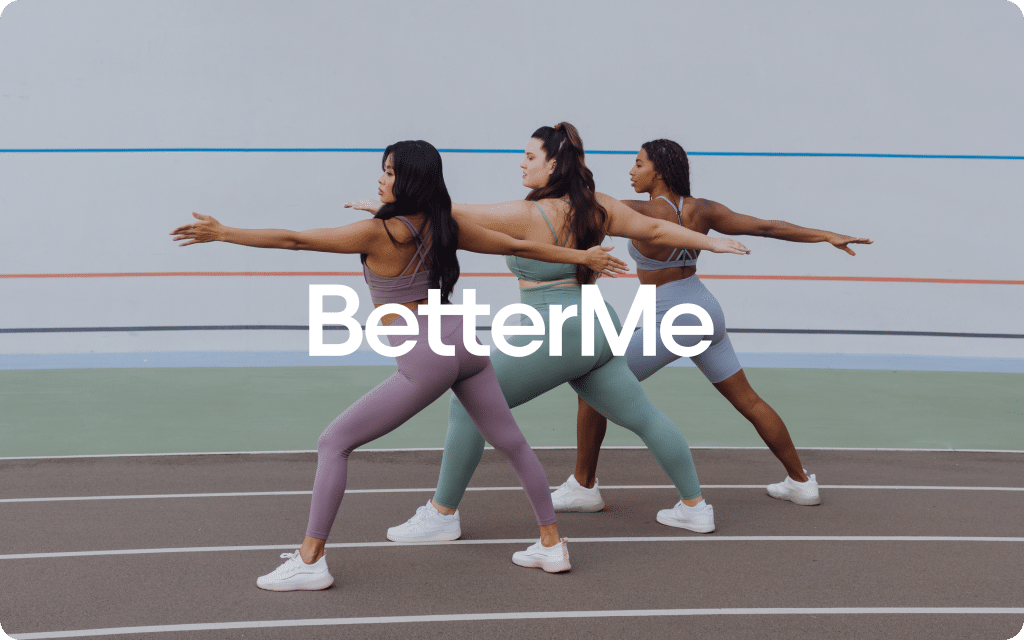Creating a full-body mobility routine is necessary for helpful fitness. It enhances flexibility and stability skills. Focusing only on strength or cardio overlooks the crucial aspect of mobility.
Your muscles and joints move more freely when you improve mobility.
This guide highlights the importance and benefits of a mobility routine. It also discusses how to add it to your daily life. A tailored routine for different needs includes:
- A full-body mobility routine for beginners
- Full-body mobility for men
- Home workout options
How Do You Work Full-Body Mobility?
Mobility is how well your joints move through their full range of motion. Therapists say that adding mobility exercises boosts active performance and lowers injury risk (1).
Key Parts
Stay focused on muscle flexibility and strength when improving your full-body mobility routine. Think of controlled stretching and upper-body mobility exercises. Working each muscle involves:
- Dynamic Stretching: Active movements that take your joints through their full range of motion. It improves flexibility and coordination.
- Static Stretching: Holding stretches to enhance flexibility and reduce stiffness.
- Mobility Drills: Exercises such as hip openers and spine rotations that focus on joint health.
What Workout Is Best for Mobility?
Mobility-focused workouts should engage your entire body. They should also mimic daily tasks to ensure you get the most benefit. Key examples include (2,3):
- Yoga: Improves strength and flexibility.
- Pilates: Promotes core stability and improves movement.
- Mobility training programs: Use basic movement patterns for daily life activities.
Should I Do Full-Body Mobility Every Day?
A daily full-body mobility routine can keep your joints flexible and muscles limber. Experts say that brief daily sessions offer the best results. Always listen to your body. If you feel pain, decrease the frequency to allow your muscles to recover(4).
Reasons why BetterMe is a safe bet: a wide range of calorie-blasting workouts, finger-licking recipes, 24/7 support, challenges that’ll keep you on your best game, and that just scratches the surface! Start using our app and watch the magic happen.
Listen to Your Body
Pay attention to your body’s signals. Stop or reduce your number of workouts if you feel pain and severe soreness. It’s best also to allow time for recovery between sessions.
What is a Good Full-Body Mobility Routine to Follow?
A good full-body mobility routine for beginners should target all major muscle groups and joints:
- Upper Body Mobility Exercises: Arm circles, shoulder rotations, neck movements.
- Core and Lower Back: Pelvic tilts, cat-cow stretches, trunk rotations.
- Hip and Leg Mobility: Hip flexor stretches, leg swings, and lunges.
Sample Routine
Warm-Up (5 minutes)
- Jumping jacks
- Arm circles
Mobility Circuit (15 minutes)
- Thoracic rotations
- Cat-cow stretch
- Hip flexor stretch
- Easy core exercises
- Lunging hip openers
Cool-Down (5 minutes)
- Deep breathing and stretching
This routine offers a great start to mobility exercises for beginners.
Read more: Pilates At Home: A 30 Day Challenge To Improve Your Mind And Body
How Long Should a Mobility Routine Be?
A full-body mobility routine can last from 10 minutes to an hour. Beginners should start with approximately 20 minutes and then adjust this based on their fitness level and goals.
What to Think About
- Fitness level: Adjust the time based on your experience and comfort.
- Goals: Longer sessions may be required to prepare for some athletic events.
How to Structure a Full-Body Mobility Routine
Tailor your mobility training program routine to meet your specific needs. For example, focus on home workouts or a full-body mobility routine for men.
Sample Structure
- Warm-Up: Light activities to prepare your body.
- Focused Mobility Work: Targeting major body parts.
- Skill-Specific Exercises: Drills relevant to your activities.
- Cooldown: Static stretching and relaxation.
Using Technology
Apps and wearable tech can help keep your mobility training steady. They also give you feedback and motivation (5). A full-body mobility for beginners routine is a great addition to any fitness plan as it boosts joint health and flexibility while preventing injuries.
Include regular and balanced sessions if you’re a beginner or a pro. This will increase your flexibility and strength. Start today and see the benefits!
We’ve covered the basics of a full-body mobility routine. Now, let’s explore more advanced ideas. These can improve your practice. Do you want to boost your athletic performance? Do you want to improve your daily movement? Knowing more about mobility can provide big benefits.
Tech Tools and Gadgets
Modern devices help track and enhance your mobility practices. Wearable technology and apps guide you to ensure proper workouts and that you stay safe.
- Mobility Apps: These offer guided full-body mobility routines and videos. They’re also helpful for a full-body mobility routine at home when you can’t access a coach.
- Wearable Tech: Activity trackers monitor performance and highlight flexibility and range of motion improvements. They’re also great motivators.
Integration with Strength Training
Add mobility exercises to your strength training. This can improve your muscle function and skill. When your body moves well, it can handle more weight. This makes everyday strength workouts more effective.
Combining a full-body mobility routine for men with regular gym workouts can maximize the gains and lower the risk of injury.
- Dynamic Warm-Ups: Perform exercises such as lunges with twists and leg swings in your warm-up. These moves trigger key muscle groups and prepare your body without the limits of static stretching.
- Superset Mobility: Pair strength exercises with mobility drills. You can add squats or bench presses to hip mobility workouts. This approach will keep your muscles and joints flexible.
Mobility for Athletic Performance
A focused mobility plan helps athletes and active adults. It boosts performance, agility, and speed. This leads to smoother, more efficient movements.
- Sport-Specific Drills: Tailor your routine to suit your sport. For example, basketball players should focus on easy core exercises and hip mobility for jumping.
- Recovery and Rehab: Use mobility exercises for active recovery. Gentle moves improve blood flow and help with healing. They also prepare your body for hard training.
BetterMe will shake off your mental funk, rid you of your energy-zapping habits, and help you sculpt the body of your dreams. Intrigued? Hurry up and change your life for the better!
Understanding Fascia and Mobility
Health experts have highlighted the role of fascia in mobility. Fascia is the tissue around muscles and organs (6). Techniques such as foam rolling and massage therapy can improve fascia health and boost mobility routines.
- Foam Rolling: Sessions before mobility exercises help relieve muscle knots and improve blood flow. Focus on areas such as the calves, upper back, and shoulders.
- Static Holds Post-Rolling: Static stretches help strengthen muscles and tissues further.
Read more: Do Wall Sit Exercises Work For Belly Fat?
Personalizing Your Routine
Tailor your routine to suit your goals and lifestyle. This is particularly important for beginners. Tailoring your full-body mobility routine will keep it engaging, which is crucial for long-term success.
- Evaluation and Adjustments: Regularly assess your program. Identify areas that require improvement and add exercises that target your weak points.
- Seek Professional Help: Consult a physical therapist or coach for advice. They can help tailor the routine to meet your specific goals.
To advance your full-body mobility routine, integrate it with other training methods. Use insights about fascia. Leverage technology and make your plan personal. Remember, consistency is key.
By understanding your body’s needs, you’ll achieve greater freedom of movement. You’ll reach new fitness milestones. Whether you’re practicing mobility exercises for beginners or more advanced routines, focusing on mobility is a powerful step that is essential for long-term health and athleticism.
Yes, stretching for 20 minutes a day can be very helpful. A full-body mobility routine at home gives you enough time to work on all your major muscles. This routine can help make your muscles flexible and prevent them from becoming stiff. Daily stretching also helps improve your posture and can keep you from getting hurt during other activities. Ensure the stretches fit your needs and any sports or activities you’re involved in. Working out your entire body daily can be OK, but it depends on how hard you work and what types of workout you do. If your workouts are intense, your muscles need time to rest and recover, but if you’re doing lighter exercises such as stretching or yoga, it’s fine to do them daily. Listen to your body and mix up your workouts to stay healthy and avoid injury. You can do too much mobility work, although it’s less common than overdoing intense workouts. You may be doing too much if you feel joint pain or your muscles are unusually sore. Mobility exercises should help your joints move better without causing pain. To avoid overdoing it, take breaks and make sure your mobility exercises match your overall exercise goals. Focus on doing the movements correctly rather than doing a lot of them. Mobility exercises help your joints move better and your muscles become more flexible. While they don’t build muscle directly, they allow you to perform strength exercises more effectively. For example, being flexible can help you perform squats or other lifts properly, which can help you build muscle. You should add strength training such as lifting weights to your exercise routine to build muscle directly.Frequently Asked Questions
Is 20 minutes of stretching a day enough?
Is it OK to do full-body training every day?
Can you overdo mobility?
Can mobility build muscle?
” mp4=”https://cdn.betterme.world/articles/wp-content/uploads/2025/05/PilatesOlesia1.mp4″]
The Bottom Line
Are you ready to boost your movement skills with a full-body mobility routine? Here’s how you can start today. First, set aside just 20 minutes in your daily schedule. Choose a mix of stretches and easy movements that cover your arms, legs, back, and core.
If you’re new to it, look for mobility exercises for beginners online or in an app that can guide you with videos. Warm up first and end with a cool down to keep your muscles healthy. Listen to your body – if something feels painful, stop and adjust the movement.
Add this routine to your day, whether as part of your morning start or an evening wind-down. With practice, you’ll feel more flexible, move more easily, and become stronger over time. So grab a mat and let’s improve your mobility together!
DISCLAIMER:
This article is intended for general informational purposes only and does not serve to address individual circumstances. It is not a substitute for professional advice or help and should not be relied on for making any kind of decision-making. Any action taken as a direct or indirect result of the information in this article is entirely at your own risk and is your sole responsibility.
BetterMe, its content staff, and its medical advisors accept no responsibility for inaccuracies, errors, misstatements, inconsistencies, or omissions and specifically disclaim any liability, loss or risk, personal, professional or otherwise, which may be incurred as a consequence, directly or indirectly, of the use and/or application of any content.
You should always seek the advice of your physician or other qualified health provider with any questions you may have regarding a medical condition or your specific situation. Never disregard professional medical advice or delay seeking it because of BetterMe content. If you suspect or think you may have a medical emergency, call your doctor.
SOURCES:
- Mobility Exercises (2021, apta.org)
- The Physical Benefits of Yoga (2019, health.harvard.edu)
- How to Strengthen Your Core (2023, mayoclinichealthsystem.org)
- Arthritis Exercise: What To Try and What To Avoid (2024, health.clevelandclinic.org)
- Mobility and Stability: Joint Functions When We Move (2025, blog.nasm.org)
- Fascia Mobility, Proprioception, and Myofascial Pain (2021, pmc.ncbi.nlm.nih.gov)










